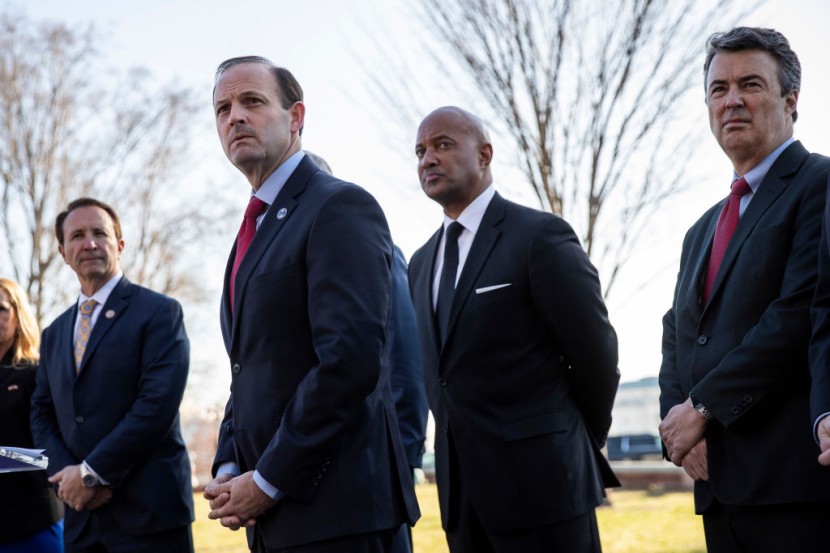
Three Jewish families are among a group of nine Louisiana families who have filed a suit in federal court challenging Louisiana Governor Jeff Landry's "Law" over a new state legislation that requires the Ten Commandments to be displayed in all public school classrooms.
Louisiana's Republican governor, Jeff Landry, is the first to sign such a law as part of state legislation against abortion rights and transgender inclusion that he believes reflect his values as a Catholic.
At a fundraiser just days before the signing, Landry bragged, "I can't wait to be sued," about the unprecedented legislation.
Filed on the families' behalf by Americans United for the Separation of Church and State, the American Civil Liberties Union, and the Freedom from Religion Foundation, the lawsuit argues that the newly enacted law violates First Amendment rights.
The court document specifically states that the new language of the law "Approves and Prescribes One Particular Version of the Ten Commandments, to Which Many People Do Not Subscribe," which violates the Constitution's prohibitions on instituting an official religion while prohibiting free exercise of religion.
The lawsuit has strong backing, highlighting that in 1980, the US Supreme Court ruled that a Kentucky state law mandating the Ten Commandments in all classrooms was unconstitutional.
However, seeing the recent and defiant arrival of a mostly conservative majority on the court, Christian culture advocates view it as an opportunity to overturn the Stone v. Graham ruling.
Similar bills were suggested in state legislatures recently, such as in Texas, Utah, and Oklahoma.
Though none have passed, Texas Lieutenant Governor Dan Patrick pledged days ago that he would make it happen.
Jewish families have long been involved in religious liberty lawsuits challenging legislation by conservative state legislatures, according to The Jerusalem Post.
In the lawsuit, parents, Reverend Darcy Roake, a Unitarian Universalist, and her husband Adrian Van Young, who is Jewish and identifies as Reform, argue that they believe "that their children will be pressured to observe, venerate, and adopt the state's preferred religious doctrine and to suppress expression of their own religious backgrounds and views at school."
Also included in the suit are Gary Sernovitz, a board member of the Touro Synagogue in New Orleans, and Molly Pulda, a member of the board of the local Jewish community center, who hope to separate the child's secular education from their religious education, citing "their desire to oversee the latter and ensure that it is consistent with their Jewish belief and practice."
Others oppose the law as it does not align with the Jewish text of the commandments and believe the displays "would violate Jewish tenets that oppose proselytizing."
Joshua Herlands, an attorney and business-school professor who has two elementary school-age children in local public schools, also took issue with the law's spelling out of the word "God," and like many Jews, writes out "G-d" instead to prevent using the name in vain.









